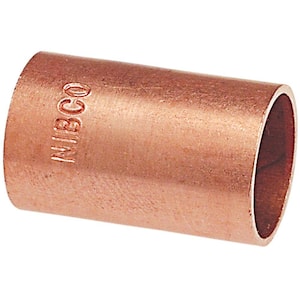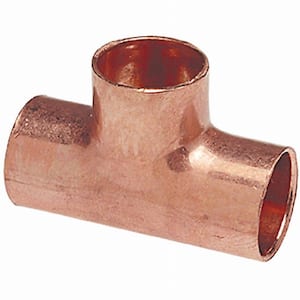Just How Copper Products Contribute to Sustainable Practices in Various Sectors
Copper products are increasingly acknowledged for their significant contributions to lasting methods throughout multiple markets, driven by their fundamental buildings such as recyclability, longevity, and efficiency. In renewable resource systems, for instance, copper boosts the capability of solar and wind innovations, while its application in building reduces waste through durability. The material's antimicrobial characteristics offer promising advantages in health care settings. As markets seek to embrace more sustainable techniques, the role of copper can verify crucial in accomplishing ecological goals. What implications might this have for future innovations in sustainability?
Copper in Renewable Resource
Copper plays a vital duty in the development of renewable resource innovations, offering as an essential conductor in different applications. Its exceptional electrical conductivity and resistance to rust make it an excellent material for electric wiring, which is crucial in solar panels, wind turbines, and energy storage space systems. In solar photovoltaic systems, copper is used in the affiliations and circuitry, enabling reliable energy conversion from sunshine to power.
In wind power, copper is indispensable to the generators and transformers that transform kinetic power right into electric power, making sure ideal efficiency and reliability. Additionally, the demand for electrical cars (EVs) is increasing, with copper being a key component in batteries, electric motors, and charging facilities. The shift to EVs dramatically improves the demand for copper, as these automobiles normally make use of 4 times much more copper than conventional inner burning engine vehicles.
As the globe seeks to mitigate environment modification and shift to lasting energy sources, copper's role becomes increasingly vital. The material not only improves the performance and durability of renewable resource systems but additionally supports the more comprehensive objective of reducing greenhouse gas discharges and promoting a sustainable future.
Eco-Friendly Construction Materials
In recent times, there has been a noteworthy shift in the direction of the fostering of environment-friendly building products in action to expanding ecological problems. This change is encouraged by the need for lasting choices that reduce eco-friendly footprints while maintaining structural stability and visual allure.
Copper, known for its durability and recyclability, has arised as a vital player in this market. It can be made use of in roofing, plumbing, and electrical systems, adding to power performance and decreasing waste. Copper's longevity means fewer replacements in time, additional improving its sustainability account.
Furthermore, materials such as bamboo, recovered wood, and recycled steel are obtaining appeal. These choices not just use reduced environmental effect however likewise advertise source preservation. As constructing codes progressively highlight sustainability, designers and building contractors are integrating these materials into their tasks, fostering advancement in style.
The boosting adoption of environmentally friendly building products shows a wider commitment to sustainability in the constructed setting. By prioritizing these products, the building industry can significantly minimize its carbon impact, line up with regulative requirements, and support a healthier ecosystem for future generations. This pattern marks a critical action in the direction of a much more sustainable future in building and construction.
Copper's Duty in Health care
Recent research studies have highlighted the considerable role of copper in healthcare settings, specifically as a result of its antimicrobial residential or commercial properties. Copper surface areas have actually been shown to minimize the existence of virus, including infections and microorganisms, by approximately 99.9% within a brief period. This remarkable effectiveness makes copper an invaluable material for high-touch surfaces in best site hospitals, such as doorknobs, bed rails, and IV posts, thereby adding to enhanced infection control actions.
In addition to its straight antimicrobial impacts, copper likewise plays a duty in the wider context of medical facility sustainability (Copper Products). By integrating copper right into clinical equipment and home furnishings, healthcare centers can lower the incidence of healthcare-associated infections (HAIs), which not only improves individual end results yet likewise decreases the prices connected with extensive health center stays and additional treatments
Furthermore, copper's longevity and recyclability align with lasting techniques, permitting responsible source monitoring. As health care systems significantly focus on both client security and ecological stewardship, the combination of copper items is ending up being more common. This double advantage underscores copper's crucial contribution to a healthier, safer, and a lot more sustainable health care setting.
Sustainability in Transport

In addition, webpage copper's resilience and corrosion resistance add to the long life of transport facilities (Copper Products). In rail systems, for view example, copper components enhance the dependability and effectiveness of signaling and power systems, necessary for decreasing hold-ups and power usage. Furthermore, copper's role in renewable resource systems, such as solar and wind, supports sustainable transportation services by supplying tidy power for electric transit choices
Investments in copper modern technology not only foster sustainability but additionally boost financial development and task development in environment-friendly sectors. As sectors aim to satisfy rigid ecological laws, the application of copper products in transportation emerges as an essential method in accomplishing sustainability goals and advertising a cleaner, a lot more effective future.
Copper and Circular Economy
As the world progressively accepts sustainability, the role of copper in the round economic climate comes to be ever a lot more significant. Copper's innate properties-- such as its toughness, conductivity, and recyclability-- setting it as a key product in a resource-efficient economic situation. The round economy aims to decrease waste and take full advantage of source use via recycling and reusing products, and copper master this regard.
The metal can be recycled indefinitely without loss of top quality, making it an optimal prospect for sustainable methods throughout numerous sectors, consisting of construction, electronic devices, and renewable resource. By recouping and reprocessing copper from end-of-life products, markets can considerably minimize the demand for virgin materials, thereby decreasing environmental impacts associated with mining and processing.
Additionally, the assimilation of copper right into circular economic climate frameworks not just preserves sources but likewise fosters development. Companies that focus on copper recycling add to an extra sustainable supply chain, enhancing their competitiveness while straightening with regulative demands and customer preferences for environmentally liable items.
Conclusion
In conclusion, copper products significantly add to lasting techniques across several sectors. Their essential role in boosting sustainable power innovations, promoting environmentally friendly building and construction products, supporting infection control in medical care, assisting in sustainable transportation, and personifying the principles of a circular economy highlights the convenience and value of copper. By integrating copper right into various applications, sectors can achieve higher effectiveness, reduce ecological influence, and align with international sustainability goals, eventually cultivating a much more sustainable future.

Copper's outstanding conductivity makes it a recommended material in electrical car (EV) systems, improving energy effectiveness and performance. Furthermore, copper's function in eco-friendly power systems, such as solar and wind, supports sustainable transport solutions by supplying tidy power for electric transportation alternatives.
Their necessary function in boosting renewable power modern technologies, advertising green building and construction materials, supporting infection control in health care, helping with sustainable transport, and symbolizing the concepts of a round economic climate underscores the flexibility and value of copper.